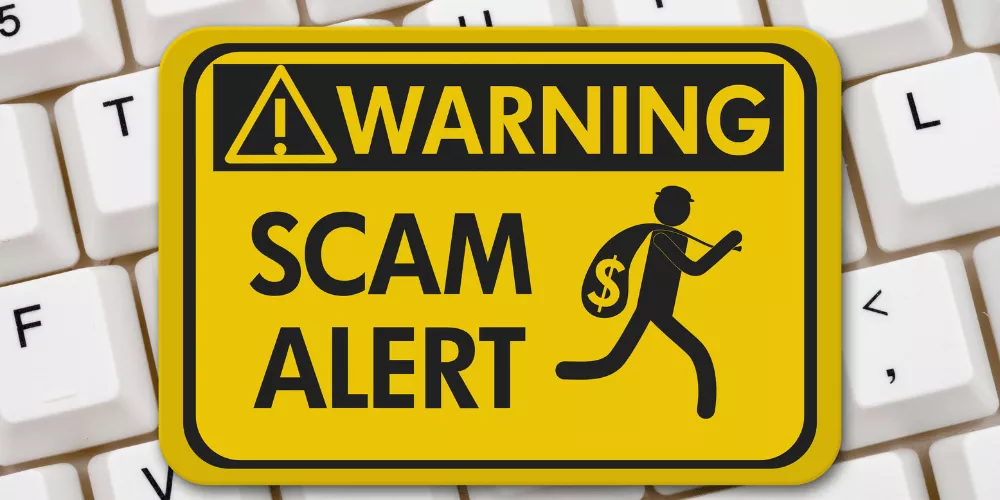
Student loan scams are fake offers, services, or messages that claim to help student loan borrowers eliminate their debt or reduce their payments, but are actually designed to steal money or personal information. These scams are becoming more common, especially as more people struggle with rising student loan balances and confusing repayment programs.
Many of these scams target borrowers who are desperate for relief. A scammer might offer help with debt relief or promise lower monthly payments, but then demand upfront fees or personal data. Some might even pretend to be from the federal government.
If you have student loans or are looking into repayment options, it’s important to know how to recognize these red flags. According to the Federal Trade Commission, many scam companies use high-pressure tactics and promise results that sound too good to be true.
To avoid scams, start by understanding how real federal student loan programs work. If you have federal student loans, your loan is handled by a legitimate loan servicer approved by the Department of Education. These loans are supported by the federal government, and services like repayment plans or consolidation are always available without charging fees.
Don’t let scam companies convince you to pay for help you can get for free. A real servicer will never ask for your FSA ID or require payments before offering support. If someone claims they can cancel your student loans immediately or get you forgiveness “guaranteed,” that’s a major red flag.
At Credit.org, we offer guidance to help you navigate your education debt safely. Start with this helpful article: Understanding What Student Loan Forgiveness Really Is.
Scammers often give themselves away through sloppy communication. Watch for grammatical errors, typos, or strange phrases in emails or texts. Real government agencies use clear, professional language.
Also, look out for email addresses that don’t match the organization’s website, official sounding names like “National Student Aid Center,” or messages that urge you to act quickly or “act fast” to avoid losing your forgiveness opportunity.
These pressure tactics are meant to scare you into making a rushed decision.
Scammers aren’t just after your money. Many are trying to steal your identity. When you give away personal details—like your account information, bank account number, or credit card number—you open the door to identity theft.
Some scammers may ask for your FSA ID, claiming they need it to help you with forgiveness. But your FSA ID is your legal signature for federal student aid. Sharing it gives someone full access to your student loan records. Never share it with anyone, not even a company offering “help.”
If you think your identity may have been stolen or your information compromised, follow these steps:
Scammers love to talk about student loan forgiveness, especially now that many borrowers are confused about their options. Terms like total loan forgiveness, loan cancellation benefits, and forgiveness programs may be used to trick you into thinking you qualify for a benefit you’ve never heard of. This has led to a rise in student loan forgiveness scams targeting confused borrowers.
While real loan forgiveness programs do exist—especially for federal loans—they usually have strict eligibility rules and require years of consistent qualifying payments. Anyone who promises instant results is probably lying.
The Department of Education does not offer forgiveness in exchange for a fee, and it does not cold-call borrowers to advertise benefits.
If a company says they’ll get you forgiveness “no matter what,” that’s a sign of a scam.

Many debt relief companies claim they can erase your debt or lower your payments with a secret solution. They may say they’re a “document preparation service,” or that they’re working closely with the Department of Education, but they’re not.
These fake loan debt relief companies often:
Even when they send you paperwork, it may not be valid. You might be signing over access to your loan account, or agreeing to let them auto-debit your checking account each month without doing anything for you.
When you are contacted online, pay close attention to the sender's email address; it may look official at first glance, but if you're dealing with college debt in 2025 then you grew up with the internet and you know to verify everything and never give out your username and password to a third party.
For more tips, check out Avoid Student Loan Scams – VSAC.
One of the most common scams involves charging people for something that’s already free. Income-driven repayment plans (IDR plans) are designed to make your monthly student loan payments affordable based on your income and family size.
There are four major IDR plans available through the federal government, including:
If a company asks for money to enroll you, it’s a scam. You can apply for these repayment plans directly through your loan servicer or studentaid.gov, and there is no charge.
Some scammers say they can “simplify the process” or offer “professional help,” but what they really do is fill out forms you could complete on your own for free. You don’t need to pay for repayment options, repayment terms, or to adjust your monthly payment.
Legitimate help with your student loans never starts with a bill. Scammers may charge monthly fees, ask for a “processing” fee, or say they need payment before services begin. Others might ask for your credit card number to “hold your spot” or confirm your identity.
These tactics are illegal. Federal law prohibits companies from collecting advance fees for student loan debt relief. Real help is available without paying anything upfront.
Also be cautious of companies that claim to offer free services or free assistance, then surprise you with hidden costs. Always read the fine print.
You should never give out:
If someone says you need to pay or provide sensitive data before they’ll help, walk away.
Scam companies often create fake brands that sound like government agencies. They might use names like “Federal Loan Assistance Department” or “National Student Relief Center.” These official sounding names are designed to confuse you.
Some scammers go a step further, using fake logos and copycat websites that look similar to real federal sites. Always verify the site you’re using ends in .gov; for example, studentaid.gov or consumerfinance.gov.
You can also check if a company is legitimate through the Federal Trade Commission, or by contacting your real loan servicer.
If you have federal student loans, you are assigned a student loan servicer to manage your account. Your servicer provides details about your loan terms, helps you apply for payment plans, and keeps track of your loan balance.
Scam companies may say they’re affiliated with your servicer or the federal loan servicer, but they’re not. They might even ask you to “switch” providers or sign a written agreement giving them permission to take over your loan management.
This is almost never necessary and could result in lost payments, late fees, or worse. Always contact your loan servicer directly for help. If you’re unsure who your servicer is, use your FSA ID to log into studentaid.gov and find out.
You can also get support from trusted nonprofit organizations like Credit.org. Read How to Talk to a Student Loan Officer or Debt Collector for advice on staying in control of your student debt.
Some borrowers are told they must consolidate their direct loans right away to qualify for forgiveness. Others are promised lower monthly payments or reduced loan terms through private consolidation.
Here’s what to know:
Scammers may use this process to gain control of your account. Once you give them your login, they can redirect your payments or withdraw funds from your account.
Private consolidation is different. If you refinance with a private loan, you may lose access to federal benefits like income-driven plans or loan forgiveness programs.
Always research carefully before you consolidate your federal student loans, and never agree to consolidation through a company that cold calls you or demands fees.
Many scam companies target people with private loans, promising to reduce balances, stop collections, or erase interest. But private lenders don’t offer the same protections or programs as federal student loans.
If a company says they can change your private loan into a federal one, or guarantee loan forgiveness, they are likely lying. Even if you’re struggling with a private lender, only that lender can change your repayment terms or offer relief.
Watch out for claims that a company requires immediate action or says they work with “federal partners.” These phrases are designed to confuse you.
When in doubt, contact your loan holder directly, or seek help from a trusted nonprofit instead of private companies making big promises.
Your FSA ID is your key to accessing all federal student loan services. It should never be shared with anyone, not even a company offering to “help” you. Scammers who get this information can change your loan details, redirect payments, or commit fraud in your name.
You should only use your FSA ID on the official studentaid.gov site or when working with an approved servicer. No one else should ever ask for your login, password, or account information.
If someone says you must “talk directly” to a representative and asks for login info, it’s a trap. Hang up and call your servicer using the number on your loan statement.
Some scams are easy to spot because they just sound too good to be true. A caller might say:
These are classic false claims. In reality, forgiveness takes time, and no one can guarantee your eligibility. Real programs require an application, documentation, and often years of repayment.
Scammers may also use official looking names or say they are a government agency, when they are not. They may even forge written agreements giving them power over your loan.
Always verify any claim before you sign or send money.
If you’ve been contacted by a scammer or think you’ve already been affected, take action immediately.
Here’s what you can do:
And most importantly, don’t go through this alone. Credit.org offers trusted help to guide you through your options and protect your financial aid and future.
Get Free Help From a Trusted Counselor
We’ll walk you through your student loan options, answer questions, and help you steer clear of scams at no cost to you.